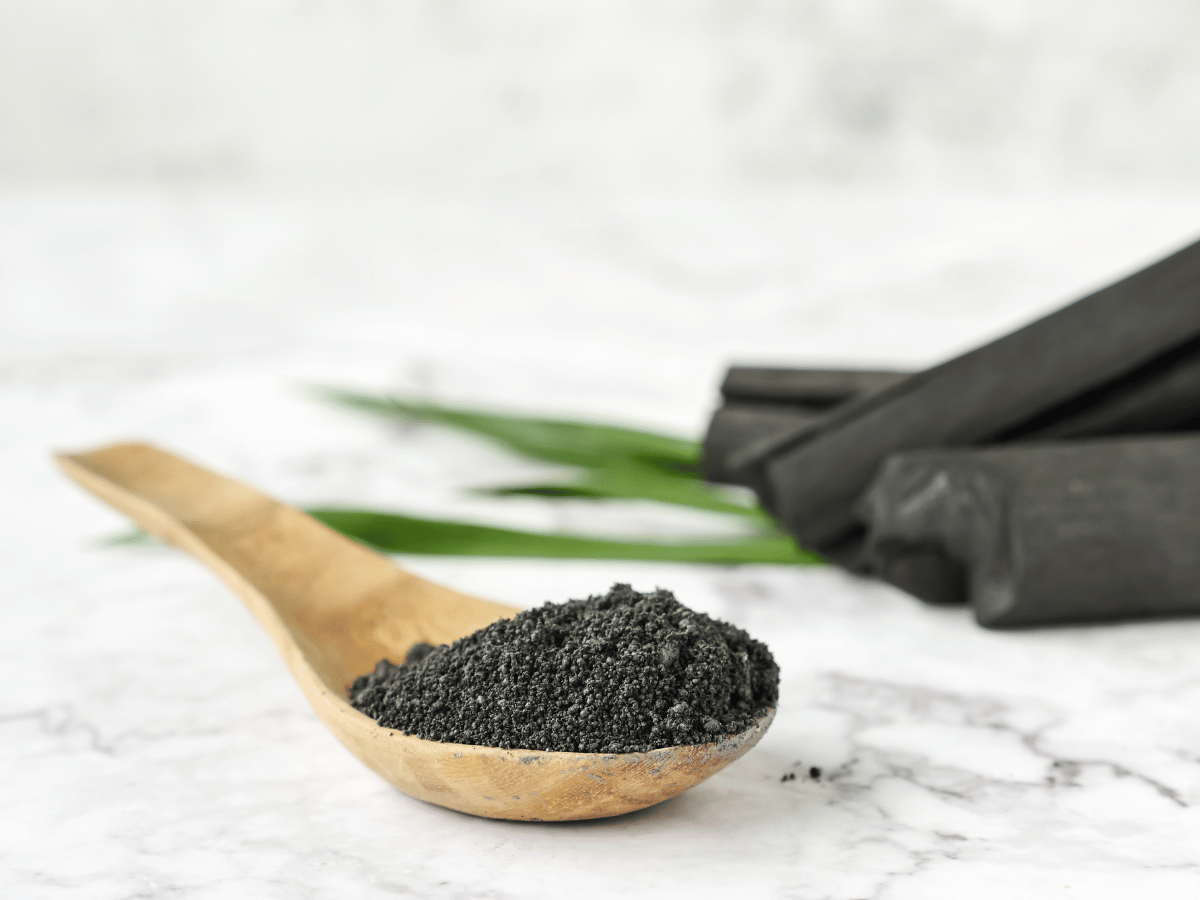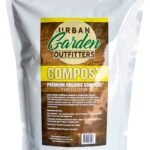Introduction to Gardening Charcoal
Gardening charcoal, also known as biochar or horticultural charcoal, is an organic product gaining popularity among gardeners for its numerous benefits. Derived from the carbonization of various organic materials, this type of charcoal is specially designed to improve soil quality and maintain its overall health.
When applied correctly, gardening charcoal creates an environment where plants can thrive, leading to better growth and yield.
One of the main advantages of using charcoal in the garden is its ability to enhance the soil’s structure. By improving air circulation and water retention, this type of charcoal is ideal for various gardening purposes, such as soil amendment and composting.
Moreover, gardening charcoal also plays a significant role in preventing soil compaction, leading to better root growth and increased nutrient retention.
Key Takeaways
- Gardening charcoal improves soil structure and promotes plant health.
- Charcoal enhances air circulation, water retention, and nutrient availability in the soil.
- The diverse uses of gardening charcoal include soil amendment, composting, and mulch applications.
Understanding the Relationship between Charcoal and Gardening
When it comes to improving our garden’s soil and health, we often turn to various amendments and techniques. One such technique involves the use of charcoal. In this section, we will focus on two main types of charcoal used in gardening: biochar and horticultural charcoal.
A Look at Biochar
Biochar is a carbon-rich, porous material that is created by heating organic matter, such as wood, manure, or plant residues, under high temperatures in a low-oxygen environment. This process, called pyrolysis, preserves the carbon structure, making it a stable and valuable soil amendment.
In our gardens, biochar can provide numerous benefits, including:
- Improving soil structure and aeration
- Retaining water and nutrients
- Promoting microbial activity
- Sequestering carbon, reducing greenhouse gas emissions
We can incorporate biochar into our garden soil by mixing it into the top layer, or we can use it as a component in potting mixes. To be most effective, biochar should be used in combination with other organic amendments, such as compost and organic matter.
Read More OutdoorGoodness Articles:
Defining Horticultural Gardening Charcoal
Horticultural charcoal is another form of charcoal that can benefit our gardens. It differs from biochar in that it is typically derived from hardwood and has a lower carbon content. Like biochar, horticultural charcoal can improve soil structure and aeration, as well as increase water and nutrient retention in our garden soil.
Some uses of horticultural charcoal include:
- In potting mixes, especially for container gardening
- As a component in terrariums, where it helps to purify the air and keep the environment healthy
- As a natural filter for pond water
To use horticultural charcoal in our garden, we can mix it into the soil or incorporate it into our potting mix. Note that it may have a slight acidic pH impact, so we may need to adjust our soil pH accordingly.
In conclusion, both biochar and horticultural gardening charcoal are valuable tools that we can use to boost the health and productivity of our gardens. By understanding their uses and benefits, we can select the right type of charcoal for our specific gardening needs and create a thriving environment for our plants.
The Benefits of Charcoal in Gardening
Enhancing Soil Fertility
In our gardening efforts, we’ve found that one of the key benefits of using charcoal lies in its ability to improve soil fertility. Garden charcoal, particularly biochar or horticultural charcoal, is produced through the process of carbonizing wood.
This process releases volatile compounds from the wood, neutralizing toxins and leaving behind a rich source of carbon. By incorporating gardening charcoal into the garden, we’re able to provide a stable form of carbon, which aids in maintaining healthy pH levels in the soil.
The porous nature of charcoal particles also creates a suitable environment for beneficial microorganisms to thrive. These microorganisms play a vital role in breaking down organic matter and releasing essential nutrients for plant growth.
Improving Water Retention
Another benefit we’ve discovered in using charcoal in our garden is its ability to improve water retention. Charcoal particles can absorb and retain moisture, providing an extra source of water for plants during dry periods. This is especially useful for plants that require a lot of water, as the charcoal can help to reduce the risk of drought stress.
Additionally, charcoal aids in soil aeration, which improves the overall structure of the soil and promotes a better distribution of water between plant roots and soil pores. Using charcoal as a container filler in place of rocks or gravel can make pots lighter and easier to move, thanks to its lightweight properties as mentioned in this source.
Overall, by using charcoal in our garden, we are able to enhance soil fertility, improve water retention, and create a healthier environment for our plants to grow and thrive.
Types of Charcoal Used in Gardening Charcoal
Activated Charcoal
Activated charcoal, or activated carbon, is a type of charcoal that has been specially processed to increase its surface area and adsorption capacity. It is produced from a variety of materials, such as bamboo, coconut shells, and wood. In gardening, activated charcoal is often used as a soil amendment to improve drainage and water retention, as well as to remove toxins and pollutants. Its high surface area also makes it great for absorbing undesirable odors in indoor gardens and terrariums.
Lump Charcoal
Lump charcoal, also known as hardwood charcoal, is made from pure pieces of hardwood that have been carbonized by burning in a low-oxygen environment. This type of charcoal is well-suited for gardening as it is derived from a natural and sustainable source, without the use of added chemicals or binders. Lump charcoal is valued as a soil conditioner and biochar, helping to improve the soil structure, drainage, and microbial activity in your garden.
Charcoal Briquettes
Although not commonly used in gardening, charcoal briquettes can still offer some benefits. These compressed charcoal pieces are typically made from a mix of wood by-products and binders, making them less natural and sustainable than lump charcoal. However, they can still act as a soil conditioner, providing similar benefits as activated and lump charcoal when incorporated into the soil. It is important to use briquettes with minimal additives to avoid introducing harmful chemicals into your garden.
Coconut Shells Charcoal
Derived from the shells of coconuts, this type of charcoal is a sustainable and eco-friendly alternative to traditional wood-based charcoals. Coconut shell charcoal shares properties with activated charcoal, such as high porosity and surface area, making it an effective soil amendment. It can improve water retention, drainage, and aeration in the soil, while also helping to reduce soil acidity, benefiting both plants and the surrounding microbial community.
In conclusion, incorporating charcoals like activated charcoal, lump charcoal, and coconut shells charcoal into your gardening routine can provide numerous benefits to your soil and plants. While charcoal briquettes may not be the most preferred option, they can still be useful when used cautiously. By understanding the different types of charcoal and their applications in gardening, you can optimize the health and growth of your garden.
Gardening Charcoal as a Soil Amendment
Role in Adjusting Soil pH
Charcoal, specifically biochar, can be beneficial when used as a soil amendment. One of the primary ways it can help is by adjusting the soil pH. Biochar has been found to have a liming effect, which means it can make acidic soils more alkaline1. This is particularly useful for gardeners working with acidic soils, as many plants require a neutral to slightly acidic pH range to grow optimally.
However, it is important to note that adding too much biochar can raise the pH levels too high, making the soil excessively alkaline, which can negatively affect some plants2. Therefore, it’s crucial to first test the soil pH and then apply biochar according to the specific needs of your garden.
Impact on Airflow
Another advantage of using charcoal as a soil amendment is its impact on soil structure and airflow. Biochar consists of porous material, which when added to the soil, can improve aeration by creating spaces for air to circulate2. This is especially beneficial for compact or clay-heavy soils where airflow is often restricted.
Improved soil aeration offers numerous benefits for plant growth, as it allows for better root development and more efficient nutrient uptake. In addition, increased airflow can help prevent anaerobic conditions that can lead to the development of harmful bacteria4.
When incorporating charcoal into our garden soil, it’s essential to remember its potential effects on soil pH and airflow. By using this soil amendment wisely, we can create an environment where our plants can thrive. However, it is also important to avoid using excessive amounts of charcoal, as it can lead to unintended consequences. Always consider the specific needs of your garden and make adjustments accordingly.
Gardening Charcoal in Compost and Potting Mix
In this section, we’ll discuss the benefits and effects of using charcoal in compost and potting mix. Charcoal, particularly activated charcoal and horticultural charcoal, can provide various benefits to the soil and plants. Let’s explore the advantages of using charcoal in gardening.
Increased Nutrient Retention
Adding charcoal to compost or potting mix can help increase nutrient retention. Charcoal has a porous structure that can hold onto nutrients, water, and air, making them more available for plant roots to take up. This can lead to healthier, more vigorous plant growth. For instance, using activated charcoal in the soil can help improve the soil’s potassium content and overall structure source.
Prevention of Root Rot
Another significant benefit of incorporating charcoal into compost or potting mix is its ability to prevent root rot. Root rot can occur when plant roots are sitting in overly wet soil for an extended period, leading to the growth of harmful pathogens. The porous nature of activated charcoal helps improve the soil’s drainage properties, allowing excess water to move through the soil more efficiently while retaining moisture and essential nutrients that plants need for healthy growth source.
Impact on Seeds Germination
When it comes to seed germination, using charcoal in compost or potting mix can also be advantageous. Germinating seeds need adequate moisture, nutrients, and a suitable environment to grow. Mixing charcoal into your planting medium can help create the ideal conditions for germinating seeds by providing a well-draining, nutritious environment for seedlings to develop source.
In conclusion, charcoal offers numerous benefits for compost and potting mixes, including increased nutrient retention, root rot prevention, and improved seed germination. By integrating charcoal into your gardening practices, you can foster healthier, more productive plants, and create a more sustainable and efficient garden environment.
Gardening Charcoal Mulch and Pest Control
Insect Killing Properties
One of the benefits of using gardening charcoal mulch in our garden is its potential insect killing properties. When we incorporate charcoal mulch into our soil, it can help control the insect population by making the soil environment less conducive to pests. While it may not be a direct insect killer, it can certainly contribute to a healthier, more balanced garden ecosystem.
Gardening charcoal also exhibits adsorption properties, meaning it can potentially absorb and trap harmful chemicals or toxins present in the soil that may attract insects. This can help us maintain a cleaner, safer garden for our plants and reduce the need for using harmful chemical-based insecticides.
Gardening Charcoal Mulching for Roses
Roses are not only beautiful but can be quite delicate and prone to diseases and pests. Incorporating charcoal mulch in our rose garden can significantly contribute to their well-being. By using charcoal mulch around the base of our rose bushes, we can provide them with improved drainage and aeration. This is vital for roses as well-drained soil helps to prevent root rot and encourages healthy, strong root growth.
Furthermore, as we mentioned earlier, charcoal assists in controlling the insect population, acting as a natural barrier against pests that might otherwise harm our roses. As a bonus, gardening charcoal is aesthetically pleasing, adding a visual element to our garden landscaping.
In summary, incorporating charcoal mulch into our garden can provide us with valuable benefits, from insect control to enhancing our rose bushes’ health. Its natural properties can potentially contribute to a more balanced, thriving garden, where we can enjoy beautiful, pest-free plants.
Gardening Charcoal, Greenhouse Gases, and the Environment
Carbon Sequestration Role
Biochar, a charcoal-like substance, has shown potential in slowing the release of harmful greenhouse gases from soil. Produced by superheating organic matter, it serves as an alternative to composting, which can release greenhouse gases into the atmosphere during the decomposition process. Scientists believe that biochar can help in carbon sequestration, playing a role in mitigating climate change. By incorporating biochar into our gardening practices, we can contribute to reducing the overall greenhouse gas emissions.
Understanding Amazon Basin’s Terra Preta
Terra preta, also known as “dark earth” or “black soil,” is a fertile soil type found in the Amazon Basin. It’s characterized by high levels of organic matter, nutrients, and gardening charcoal particles.
The presence of biochar in terra preta has been linked to the improvement of soil properties, including water retention and nutrient availability. This unique soil has allowed crops to thrive in an otherwise challenging environment.
The Amazon Basin’s terra preta serves as a model for how we can incorporate biochar and charcoal in our gardening and agricultural practices. By understanding the properties of this fertile soil, we can replicate its benefits in our gardens, while simultaneously addressing the need for carbon sequestration and reducing greenhouse gas emissions.
Practical Tips for Using Gardening Charcoal in Gardening
In this section, we’ll discuss some practical tips for using charcoal in gardening to improve soil fertility and plant health. We’ll focus on two important aspects: measuring and mixing charcoal, and proper watering using a sprinkler.
Measuring and Mixing Gardening Charcoal
Charcoal is an excellent soil conditioner due to its high potassium content and ability to improve soil fertility. To get the most out of it, we need to measure and mix it properly with our garden bed soil.
- Choose the right type of charcoal: Make sure to use horticultural or activated charcoal that comes in chunks, not powder form1. Fine-grained activated charcoal is ideal for mixing with the soil as it can easily blend in.
- Measure and mix accurately: Use a measuring tape to determine the size of your garden bed and calculate the amount of charcoal needed. A general rule of thumb is to mix 1 part charcoal to 4 parts soil.
- Blend the charcoal with your soil: Mix the measured amount of charcoal with your garden bed soil evenly. This will help enhance nutrient retention, balance soil pH levels, and improve soil drainage3.
Proper Watering using a Sprinkler
Ensuring that our plants receive adequate water is key to their health and growth. Using a sprinkler system is an efficient way to water your garden. Here are a few tips to keep in mind when using this method:
- Adjust the sprinkler settings: Make sure the sprinkler system is set to distribute the right amount of water without over-watering or under-watering. This will prevent soil compaction caused by excess water and maintain optimal soil conditions for your plants2.
- Monitor the water distribution: Use a measuring cup or rain gauge to check the amount of water your garden bed receives from the sprinkler. This will help you adjust the system and ensure that your plants receive the correct amount of water.
- Timing is crucial: Water your garden during the early morning or late afternoon hours when the temperature is cooler. This way, the water will have time to soak into the soil and be utilized more efficiently by the plants.
Incorporating charcoal into your gardening practices, and using a proper watering technique with a sprinkler, will help improve soil fertility and create a healthy environment for your plants. Follow these practical tips to make the most of charcoal in your garden.
Frequently Asked Questions
What are the benefits of using horticultural gardening charcoal in gardening?
Horticultural charcoal offers numerous advantages when used in gardening. It enhances soil drainage, helping to prevent root rot and promote healthy root growth. Additionally, its high carbon content allows it to retain nutrients and moisture, benefiting plants in the long run [1]. Moreover, it helps maintain soil acidity and repels odors, making it an excellent soil amendment.
How does activated gardening charcoal affect plant growth?
Activated charcoal can improve plant growth by absorbing impurities and toxins in the soil, promoting healthy root development [2]. This results in healthier and better-performing plants. However, it’s essential to distinguish between activated charcoal and horticultural charcoal, as they serve different purposes. Check the packaging and guidelines for the right type of charcoal to use.
Can I make my own horticultural charcoal at home?
Yes, you can make your own horticultural charcoal at home. However, this process requires care and attention to ensure proper carbonization of organic materials [3]. The basic procedure involves burning wood or other organic materials in a low-oxygen environment. This should produce a charcoal-like substance that can be beneficial for your garden.
Which type of gardening charcoal is best suited for garden use?
Horticultural charcoal, also known as biochar, is the most appropriate type of charcoal for gardening [4]. It is specifically produced for this purpose and provides numerous benefits to plants, such as improved soil structure, higher nutrient retention, and increased moisture retention. Other types of charcoal, like activated charcoal typically used for filtering, may not have the same benefits and should be avoided.
Is horticultural gardening charcoal available at home improvement stores?
Yes, horticultural charcoal can be found at home improvement stores and garden centers [5]. It is commonly sold in small bags meant for gardening and plant care purposes. Make sure to check labels and guidelines to ensure you’re purchasing the correct product for your garden.
How does horticultural charcoal compare to regular charcoal for gardening?
Horticultural charcoal or biochar is specifically designed for gardening purposes, offering several benefits that regular charcoal, such as the kind used for grilling, may not provide [6]. Regular charcoal may contain additives and chemicals harmful to plants and may not improve soil quality as effectively as horticultural charcoal. Therefore, we recommend choosing horticultural charcoal for gardening to ensure you reap the maximum benefits for your plants.
Footnotes

Meet Kevin Goodell, your outdoor adventure coach! With a passion for nature ignited in childhood, Kevin brings a wealth of experience and expertise to simplify tough outdoor skills. As a U.S. Army veteran and former Sergeant, he has honed his leadership and teamwork abilities while developing a deep love for the great outdoors.
Kevin’s dedication to outdoor activities spans biking, birdwatching, national park trips, and archery/golf. With his friendly and approachable demeanor, he is committed to guiding individuals of all ages and skill levels towards unforgettable outdoor experiences.
Harnessing his extensive knowledge and personal achievements, Kevin is your go-to resource for learning and enjoying various outdoor pursuits. Whether you seek thrilling adventures or serene nature escapes, Kevin’s professional yet friendly approach will ensure an engaging and informative experience. Embark on your next outdoor adventure with Kevin Goodell and embrace the beauty of nature like never before.






